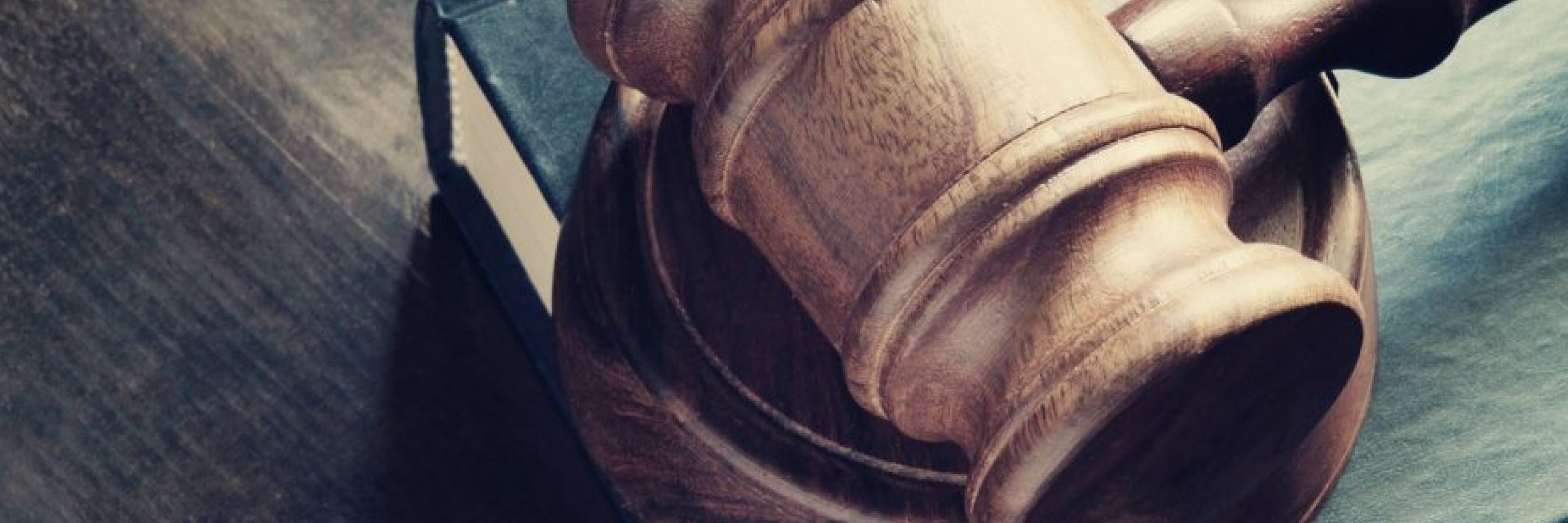
Unlike the Federal Rules of Appellate Procedure that apply in civil actions appealed from the United States District Court of New Jersey, the Court Rules governing actions filed in the Superior Court of New Jersey (state court) do not include a specific rule allowing a prevailing party to recover legal fees incurred in defending a frivolous appeal.
Federal Court Appeals
Appeals from the United States District Court of New Jersey are heard by the United States Court of Appeals for the Third Circuit. Fed. R. App. P. 38 authorizes a federal appellate court to award legal fees and costs to a prevailing party who has defended a frivolous appeal. The Rule states:
If a court of appeals determines that an appeal is frivolous, it may, after a separately filed motion or notice from the court and reasonable opportunity to respond, award just damages and single or double costs to the appellee. [Fed. R. App. P. 38].
State Court Appeals
There is no similar rule that applies in civil appeals handled at the state court level, however. The New Jersey state court system is governed by a separate set of court rules. While the New Jersey Court Rules authorize the Appellate Division of the Superior Court of New Jersey to impose fees and costs to the successful or prevailing party on appeal, “frivolous appeals” is not cited as a basis to do so.
Pursuant to New Jersey Court Rule 2:11-4 (“R. 2:11-4”), the Appellate Division has the ‘discretion’ to award attorney’s fees to the prevailing party on appeal in only the following limited circumstances:
- In all actions in which an award of counsel fee is permitted by R. 4:42-9(a), except appeals arising out of mortgage or tax certificate foreclosures.
- In a worker’s compensation proceeding. Where the determination of the Supreme Court reverses a denial of compensation in the Appellate Division, the Supreme Court shall determine the fees for services rendered in both appellate courts.
- As a sanction for violation by the opposing party of the rules for prosecution of appeals.
[R. 2:11-4 (a) – (c)].
Under New Jersey Court Rule 2:11-5 (“R. 2:11-5), the Appellate Division has authority to order the losing party to pay the prevailing party’s costs incurred in defending the appeal such as “the cost of the transcript and the reasonable expense of printing or reproducing briefs, appendices, motions and petitions, . . . .” [R. 2:11-5].
But neither R. 2:11-4 or R. 2:11-5 authorizes a New Jersey state appeals court to order the losing party to pay the prevailing party’s legal fees incurred in defending a frivolous appeal.
Frivolous Sanctions Available at Trial Court Level
At the trial level in the Superior Court of New Jersey there are two avenues of relief available to litigants forced to incur attorney’s fees in defending a frivolous claim; namely, Rule 1:4-8 (“R. 1:4-8”) which allows for recovery against both lawyer and client if the frivolous claim is not withdrawn within a certain time after written demand is made and delivered, and N.J.S.A. 2A:15-59.1 (also known as the frivolous litigation statute) which allows for recovery only against a litigant.
Pursuant to R. 1:4-8 the signer of a “pleading, motion or other paper” is deemed to represent that to the best of his/her knowledge that the document:
- “. . .is not being presented for an improper purpose, such as to harass or to cause unnecessary delay or needless increase in the cost of litigation;
- the claims, defenses, and other legal contentions therein are warranted by existing law or by a non-frivolous argument for the extension, modification, or reversal of existing law or the establishment of new law;
- the factual allegations have evidentiary support, or as to specifically identified allegations, they are either likely to have evidentiary support or they will be withdrawn or corrected if reasonable opportunity for further investigation or discovery indicates insufficient evidentiary support; and
- the denial of factual allegations are warranted on the evidence, or as to specifically identified denials, they are reasonably based on a lack of information or belief or they will be withdrawn or corrected if a reasonable opportunity for further investigation or discovery indicates insufficient evidentiary support.”
[R. 1:4-8(a)(1) to (a)(4)]. This Rule applies equally to both clients and their lawyers. In other words, the court can sanction both the lawyer and client for violating R. 1:4-8.
There is a 28-day safe harbor provision that applies to R. 1:4-8. If the offending party withdraws or corrects the frivolous “pleading, motion or other paper” within 28 days of receiving service of a written demand, then the Court is prohibited from imposing sanctions.
In addition, New Jersey has a separate statute that authorizes trial courts to impose sanctions against a party for engaging in frivolous litigation. Known as the Frivolous Litigation Act, N.J.S.A. 2A:15-59.1 states:
A party who prevails in a civil action, either as plaintiff or defendant, against any other party may be awarded all reasonable litigation costs and reasonable attorney fees, if the judge finds at any time during the proceedings or upon judgment that a complaint, counterclaim, cross-claim or defense of the nonprevailing person was frivolous.
[N.J.S.A. 2A:15-59.1 a(1)]. Unlike its counterpart R. 1:4-8, the Frivolous Litigation Act requires the party to win the entire case as a condition precedent to pursuing sanctions. Further, the statute does not authorize recovery of sanctions against a party’s lawyer whereas R. 1:4-8 does.
The Frivolous Litigation Act statute provides two independent bases for trial courts to conclude that a “complaint, counterclaim, cross-claim or defense of the nonprevailing party was frivolous; namely,
- The complaint, counterclaim, cross-claim or defense was commenced, used or continued in bad faith, solely for the purpose of harassment, delay or malicious injury; or
- The nonprevailing party knew, or should have known, that the complaint, counterclaim, cross-claim or defense was without any reasonable basis in law or equity and could not be supported by a good faith argument for an extension, modification or reversal of existing law.
[N.J.S.A. 2A:59.1b(1) – (2)].
“When applied together, the Frivolous Litigation Statute and R. 1:4-8 are intended to serve a dual purpose: punitive, by seeking to deter frivolous litigation; and compensatory, by seeking to reimburse the party who has been the subject of the frivolous action.” Norman Towers Partnership, LLC v. PHW Consulting, Inc., No. A-5583-12T3 (App. Div. August 1, 2014)(citing Alpert, Goldberg, Butler, Norton & Weiss, P.C. v. Quinn, 410 N.J.Super. 510, 545 (App. Div. 2009); Ferolito v. Park Hill Ass’n., 408 N.J. Super. 401, 407 (App. Div. 2009).
However, the New Jersey Appellate Division has held that the Frivolous Litigation Act does not apply to a frivolous appeal. Zavodnick v. Levin, 340 N.J. Super. 94 (App. Div. 2001); Community Hosp. Group, Inc. v. Blume Goldfaden Berkowitz Donnelly Fried & Forte, P.C., 381 N.J. Super. 119, 129 (App. Div. 2005). Because the statute expressly references only a “complaint, counterclaim, cross-claim or defense” – thus omitting the term “appeal” – it cannot be used as a means of pursuing recovery of legal fees for defending a frivolous appeal.
Conclusion
When faced with defending a frivolous appeal in the Appellate Division of the Superior Court of New Jersey, appellate counsel should serve a written demand to withdraw the appeal by following the procedures outlined in R. 1:4-8.
It is never easy to persuade an appellate court that an appeal is frivolous, and courts always retain discretion when determining whether to impose sanctions and the appropriate amount of counsel fees. But in the absence of serving a frivolous notice under R. 1:4-8, there is no other court rule or statute that enables the prevailing appellate respondent to recoup its counsel fees in successfully defending a frivolous appeal.
Tagged in: appeals frivolous New Jersey, attorney's fees frivolous appeals NJ, defending frivolous appeals Appellate Division NJ, frivolous lawsuit NJ, Lawyer fees frivolous appeals NJ, legal fees frivolous appeals NJ, N.J.S.A. 2A:15-59.1 Frivolous Litigation Act, N.J.S.A. 2A:15-59.1 Frivolous Litigation Statute, prevailing party legal fees appeals NJ, Recovering attorney's fees defending frivolous appeals in NJ State Court, Rule 1:4-8, sanctions frivolous appeals NJ


